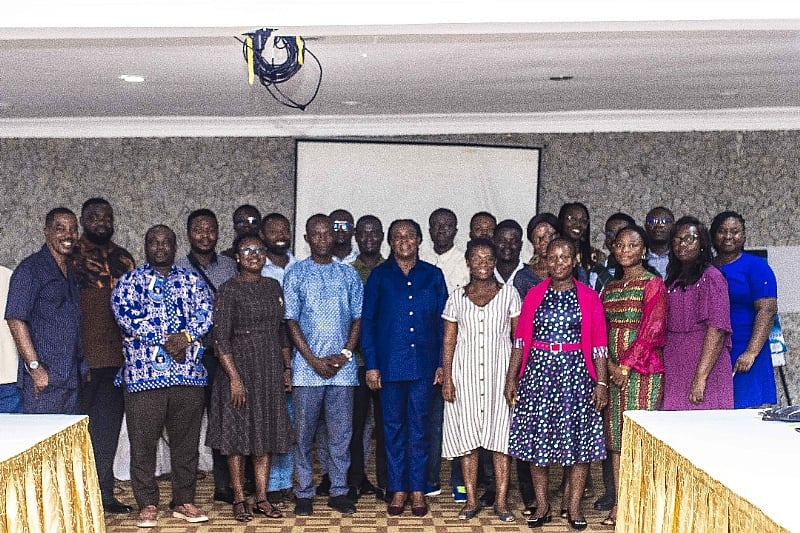Phase II of Y-Check Ghana’s Adolescent Health Screening Concludes with Promising Outcomes and Stakeholder Endorsement
Y-Check Ghana, a pioneering adolescent health initiative, has successfully completed its second phase, marking a significant milestone in its mission to establish a sustainable model for routine adolescent health check-ups in the country. The culmination of Phase II was marked by a stakeholder dissemination forum held in Cape Coast, bringing together a diverse group of stakeholders, including education and health officials, school administrators, students, community leaders, and parents. The forum served as a platform to review the progress achieved, share key findings from the project, and collaboratively chart the course for future endeavors. The positive outcomes observed in Phase II, coupled with the strong endorsement from stakeholders, underscore the potential of Y-Check to transform adolescent health services in Ghana and potentially beyond.
The forum, held on June 17, 2025, provided a valuable opportunity for in-depth discussions on the outcomes of the Y-Check initiative. Participants engaged in productive dialogue, offering valuable recommendations for enhancing adolescent health interventions within both school and community settings. The shared insights and collective brainstorming are expected to play a crucial role in shaping the next stages of the project and ensuring its long-term sustainability. Dr. Franklin Glozah, Deputy Principal Investigator of Y-Check Ghana and a Senior Lecturer at the University of Ghana’s School of Public Health, emphasized the exploratory nature of the project, highlighting the need for further validation of the preliminary findings. However, he expressed cautious optimism about the initial results, noting noticeable improvements in the health of participating adolescents following the interventions.
Preliminary data from Phase II suggest a positive impact on the health of participating adolescents. Follow-up assessments conducted four months after the initial screenings revealed a reduced prevalence of certain health conditions identified earlier. While these results are encouraging, Dr. Glozah stressed the importance of subjecting them to more rigorous evaluation to confirm their significance and ensure the robustness of the findings. He also announced that the project’s findings will be submitted to the World Health Organization (WHO) to contribute to the development of future adolescent health policy guidelines, potentially influencing global best practices in this critical area. This underscores the potential global impact of the Y-Check project, positioning Ghana as a leader in adolescent health innovation.
Building upon the successes and lessons learned in Phase II, preparations are underway for a potential Phase III of the project. This next phase is envisioned to involve cluster randomized trials, a robust research methodology that will enable a more comprehensive assessment of the programme’s effectiveness. By comparing outcomes between groups who participated in the Y-Check screenings and those who did not, researchers aim to solidify the evidence base for future scale-up and integration into national health systems. This rigorous evaluation will provide critical data for policymakers and stakeholders, informing decisions about broader implementation and resource allocation. The transition to Phase III reflects a commitment to evidence-based decision-making and a dedication to ensuring the efficacy and sustainability of the Y-Check model.
While the Y-Check team in Ghana is actively contributing to the development of this innovative health model, the ultimate decision regarding its national integration rests within the policy frameworks of the WHO. Dr. Glozah emphasized that the project’s findings will inform recommendations to the WHO, providing valuable data to support their decision-making process. A crucial contribution of the Y-Check initiative has been its inclusion of screenings for often overlooked health conditions, such as mental health issues, which are typically absent from traditional school health programmes. This holistic approach to adolescent health addresses a critical gap in existing services, highlighting the importance of comprehensive screenings to ensure the overall well-being of young people.
The dissemination forum generated significant stakeholder enthusiasm and a resounding endorsement for the Y-Check programme. Participants strongly advocated for increased efforts to institutionalize adolescent health screenings within the national health system. Several stakeholders proposed the creation of a dedicated national policy that integrates these essential services into the National Health Insurance Scheme, ensuring wider access and financial sustainability. Others suggested mobilizing support from local authorities and Members of Parliament to secure funding and expand the initiative’s reach. These proactive recommendations reflect a shared commitment to prioritizing adolescent health and underscore the potential of Y-Check to become a cornerstone of national healthcare strategies. Dr. Glozah acknowledged the ongoing collaboration with the Ghana Education Service and Ghana Health Service, highlighting the potential of the project’s findings to inform broader national strategies for promoting adolescent well-being.
The Y-Check programme is a multi-country initiative supported by the WHO and implemented in Ghana (Cape Coast), Tanzania (Mwanza), and Zimbabwe (Chitungwiza). The overarching goal of the project is to explore the feasibility, acceptability, and cost-effectiveness of a sustainable health check-up model specifically designed for adolescents. In Ghana, the programme targeted 2,001 adolescents aged 10 to 19, involving two rounds of comprehensive health check-ups, counselling, treatment, and referrals delivered by trained health professionals. Importantly, teachers, parents, and community leaders were actively involved in shaping and evaluating the intervention, ensuring that the programme is culturally relevant and responsive to the needs of the local community. This participatory approach strengthens community ownership and promotes the long-term sustainability of the programme.


